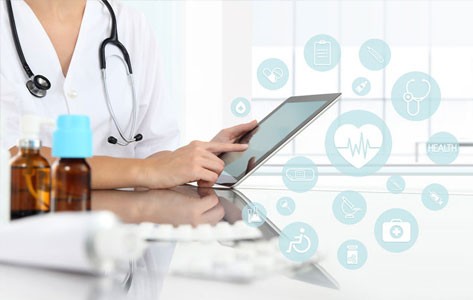Every resident in our program learns to:
- Educate the faculty and residents regarding the definitions of the new core competencies and descriptions of any new assessment tools, including changes to the evaluation forms.
- Review all existing assessment and evaluation forms and modify the terminology to a competency-based description that specifically mentions “patient care” quality and other core competencies.
- Modify resident assessment forms that measure patient care to incorporate each of the skills listed in the core competency definitions, as well as the sub-competencies and tasks as outlined from the Model of the Clinical Practice of Emergency Medicine document.
- Provide patient care that is timely, effective, appropriate and compassionate for the management of health problems and the promotion of health.
- Gather accurate, essential information in a timely manner from all sources, integrate diagnostic information and generate an appropriate differential diagnosis.
- Implement an effective patient management plan, including therapy, appropriate consultation, disposition and patient education while competently performing the diagnostic and therapeutic procedures and emergency stabilization considered essential to the practice of emergency medicine.
- Prioritize and stabilize multiple patients and perform other responsibilities simultaneously.
- Identify life-threatening conditions, diagnose, synthesize acquired patient data, identify how and when to access current medical information, properly sequence critical actions in patient care, generate a differential diagnosis for an undifferentiated patient, and complete disposition of patients using available resources.
- Respectfully, effectively and efficiently communicate and develop a therapeutic relationship with patients and their families.
- Develop flexible communication strategies and adjust them based on the clinical situation.
- Develop effective listening skills and elicit and provide information using verbal, nonverbal, written and technological skills.
- Handle situations unique to emergency medicine including: intoxicated patients, altered mental status, delivering bad news, do-not-resuscitate decisions, communication barriers, acutely psychotic patients, high-risk refusal-of-care patients, difficulties with consultants, and communication with out-of-hospital personnel and non-medical personnel (police, media, hospital administration).
- Develop effective written communication skills.
- Interact professionally with patients and their families, other members of the health care team, ancillary staff, out-of-hospital personnel and non-medical personnel.
- Model behaviors of professionalism: punctuality, accurate charting, concern for patients’ rights, respect for patients and coworkers, and confidentiality.
- Demonstrate both an understanding of the contexts and systems in which health care is provided and be able to apply this knowledge to improve and optimize health care.
- Develop knowledge of various health care delivery systems, provide cost-effective care, advocate for quality patient care and assist patients in dealing with system complexities.
- Analyze and assess practice experience and perform practice-based improvements.
